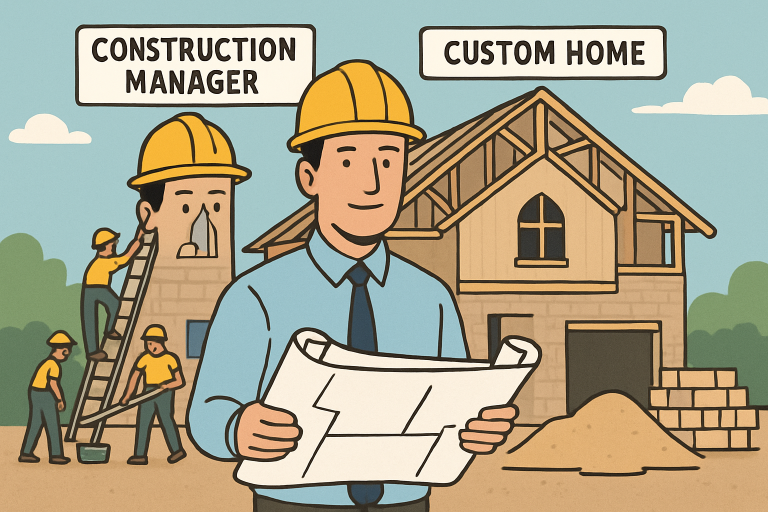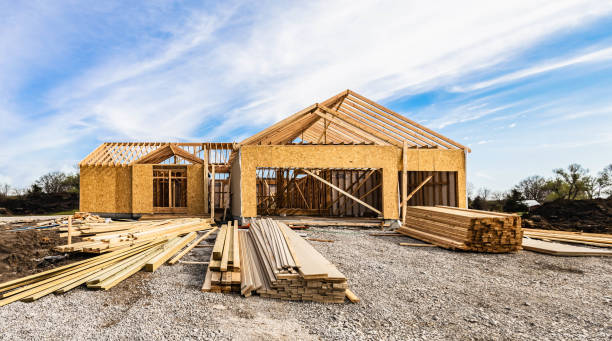Key Takeaways:
- Custom homes offer personalization and flexibility, but demand thoughtful management.
- Construction management ensures projects stay on budget, on time, and true to your vision.
- Professional oversight delivers higher quality, better communication, and long-term homeowner value.
Setting the Stage: Building a Custom Home Today
Building a custom home is more popular than ever, as buyers look to personalize every square foot and shape living spaces to fit their lifestyles. Discerning homeowners are investing deeply in creating homes that reflect unique tastes, values, and family needs in vibrant real estate markets for New Construction Homes in the Southampton.
But what does “custom” really mean? For homeowners, it’s the chance to move beyond cookie-cutter design and have a say in everything from floor plans and finishes to smart home systems and energy efficiency. It’s about expressing individuality and making every detail matter.
With so much flexibility, however, come new challenges. Ambitious visions can easily get lost in translation, budgets can balloon, and schedules can slip — especially for buyers who rely on separate architects, trades, and general contractors to manage the process. For many, the journey toward a dream home includes unforeseen hurdles.

The Role of Construction Management in Custom Projects
Custom homes are characterized by complexity — no two projects are identical. Construction management brings order by coordinating contractors, suppliers, inspectors, and design professionals. The construction manager’s role is multifaceted: overseeing schedules, reviewing plans, controlling costs, maintaining compliance, and maintaining communication among all parties.
Involving an expert is critical with unique builds. Their experience navigating overlapping regulations, supplier variation, and design changes cannot be overstated. Whether by helping resolve design conflicts or securing the best materials, construction managers protect client interests throughout construction — ensuring that the home you planned is the home you receive.
Planning for Success: Collaboration from Day One
Collaborative planning is the foundation for a successful custom build. When construction managers are involved from the outset, they bridge the gap between creative architects and pragmatic contractors. Early coordination ensures the design vision aligns with site realities, materials availability, and budgetary constraints.
Construction managers champion the homeowner’s vision, translating design intent into clear action steps for the construction trades. This collaborative environment fosters transparency and accountability, key benefits for the homeowner. Clients stay informed about every milestone and challenge, supporting confident decision-making every step of the way.
Budget & Scheduling: Staying on Track
One of the greatest fears for custom home buyers is going over budget or missing deadlines. Construction managers use detailed budgeting tools, milestone planning, and proactive issue tracking to help projects stay on track. By vetting bids, negotiating with suppliers, and monitoring progress, they detect and solve problems before they become expensive delays.
Navigating Change Orders and On-Site Surprises
Even the best-laid plans face roadblocks, from unexpected subsurface conditions to last-minute client requests. Construction management is built for flexibility. Managers anticipate change orders, document processes, and streamline approvals to quickly integrate design or material changes without disrupting the schedule.
Quality Assurance: From Foundation to Finish
Quality control is non-negotiable in custom homes. Construction managers oversee systematic inspections and checklists at every stage — from foundation to roofing and finishing touches. They confirm that work adheres to local codes, environmental standards, and the highest craftsmanship
Value Beyond Completion: Long-Term Benefits for Homeowners
A well-managed project doesn’t just result in a smoother build; it elevates the long-term value of your home. Houses constructed with the guidance of a professional manager are more likely to pass inspections, meet warranty requirements, and perform better on resale. Efficient documentation also makes future renovations or repairs easier to navigate.
The Takeaway: Building Smarter for a Better Custom Home
For prospective homeowners, investing in professional construction management is the smartest step toward making the custom home experience rewarding and enjoyable. Early collaboration, rigorous planning, and experienced guidance deliver unmatched value — turning complex builds into success stories.




